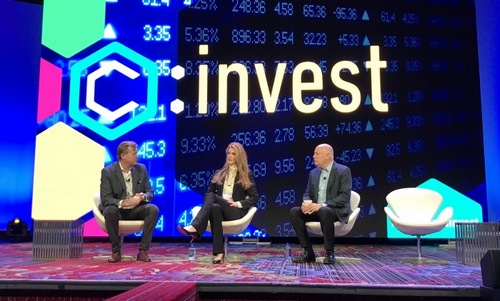The development was revealed in a document Visa sent to banks announcing an upgrade of its system, which will be rolled out in April and October, Bloomberg reported on Feb. 4.
With the move, the payments giant aims to push merchants to stop using checks, as well as adjust its new fee structure for new businesses.
Payments behemoth Visa is reportedly planning to change merchant fees rates for United States-based merchants as part of a major update of its point-of-sale system.
What to expect?
Visa is reportedly planning to introduce higher rates for transactions on e-commerce platforms and lower rates for certain services categories like real estate, health care and education. Thus, traditional Visa cardholders will pay 9 cents more for a $100 transaction and premium Visa cards owners will pay 10 cents more compared to current rates.
At the same time, premium-card holders will see a 33% drop in the interchange fee for a $50 transaction for categories such as large supermarkets. The document introduced by Visa reportedly read:
“The U.S. credit interchange structure has been largely unchanged for the past 10 years. Based on the most recent review in the U.S., Visa is adjusting its default U.S. interchange rate structure to optimize acceptance and usage and reflect the current value of Visa products.”
Visa’s interest in the fintech sector
As the global financial and payments landscape has changed dramatically since the development of digital currencies, the involvement of major credit players like Visa is a major bellwether for adoption. Worth noting, over recent months, Visa has made a number of cryptocurrency and fintech-related investments and acquisitions.
In mid-January, the company bought financial technology firm Plaid for $5.3 billion. Plaid’s products reportedly allow for convenient sharing of financial information with thousands of apps, while the firm also serves cryptocurrency wallet Abra, and crypto exchange Coinbase uses the firm’s services to obtain customers’ banking information.
That same month, Visa participated in an $80-million funding round for cross-border payments platform Currencycloud, which intends to integrate with major software platforms and begin support of alternate payment methods.

Last December, major crypto exchange Binance began allowing users to buy crypto directly through Visa credit and debit cards once they bind their accounts to Visa cards issued within the European Economic Area.
Tron Founder Justin Sun Finally Met With Warren Buffett for Charity Lunch
Tron founder and CEO Justin Sun has finally had his charity lunch with Berkshire Hathaway chairman and famous billionaire Warren Buffett after a series of delays last year.
On Jan. 23, Sun met with Buffett in a private not-for-profit country club in Nebraska, according to a press release shared with Cointelegraph on Feb. 6. The guests also included the founder of Litecoin Foundation, Charlie Lee, the CFO of Huobi, Chris Lee, the head of the Binance Charity Foundation, Helen Hai, and the CEO of eToro, Yoni Assia. Commenting on the much-anticipated event, Sun said:
“It was really an honor and I’m grateful for Mr. Buffett’s dinner, wisdom, and vision. I’ll always remember his kindness and support, and will take Mr. Buffett’s advice and guidance to make Tron a better ecosystem, business with all the partners in the blockchain space and beyond.“
A long-awaited luncheon
Sun won a charity auction on eBay to have lunch with Warren Buffett last June. Sun’s winning bid was around $4.5 million, the highest ever in the event’s 20-year history. However, the Tron CEO had to postpone due to medical reasons, and in July announced that he would reschedule his charity lunch with Buffett “very soon.”
Ahead of the postponement, Sun had notably extended an invitation for the event to United States President Donald Trump, following the president’s scathing remarks about cryptocurrencies on social media.
The next time Sun began speaking about the lunch was last September, when he rescheduled the meal again.
In the meantime, all proceeds from the auction had been transferred to the San Francisco-based non-profit GLIDE Foundation. GLIDE focuses on fighting injustice and inequality on behalf of economically deprived and oppressed communities in need, including the homeless and those from ethnic minorities and LGBTQ orientation.
Crypto community’s commitment to charity
Last December, Sun publicly pledged to donate $1 million to efforts by the young Swedish activist Great Thunberg to raise global awareness of the climate crisis. However, it was left unclear as to how cryptocurrency would help reduce carbon footprints through the creation of decentralized settlements. Stipulating on the matter, Sun told Cointelegraph:
“Decentralized settlement and decentralized finance are completely run by computers on cloud computing systems, thus eliminating the need for ledger documentation and management records kept on paper.”
On Feb. 4, Hyperchain announced the launch of its blockchain-based platform to fight against the coronavirus epidemic. It will serve as a medical supply donations portal to support hospitals in central China.


